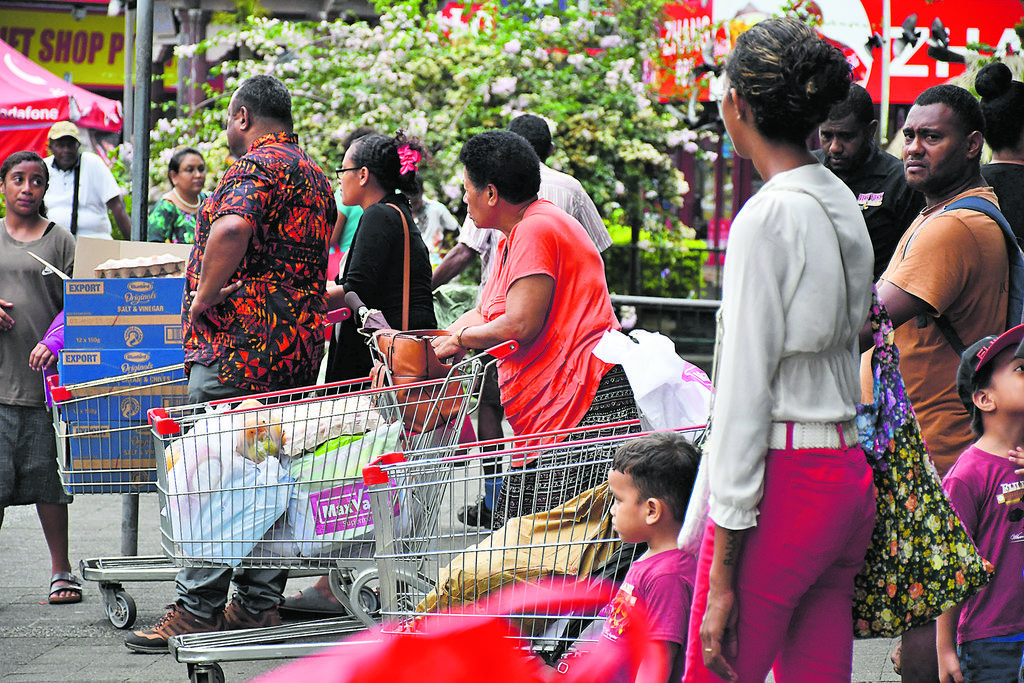THE budget’s focus on infrastructure as a catalyst for economic growth is a step in the right direction, however, there is a glaring issue that cannot be overlooked. Over 50,000 Fijians were forced to leave for greener pastures in Australia and New Zealand in 2023 alone. This exodus speaks volumes about the lack of opportunities within our own borders. While the Government trumpets infrastructure spending as a job creator, the cold reality is that how many new jobs have been created for the unemployed and for our fresh graduates?
The failure to directly address the skyrocketing cost of living is, at best, a missed opportunity and, at worst, a glaring oversight. Fijian households, especially those at the lower end of the income spectrum, continue to struggle with the rising cost of basic necessities. This is not just a matter of economic statistics; it is a daily struggle for families. The budget could have gone further, offering subsidies or price controls for essential items like rice, bread, and public transport fares. For example, the cost of bread has more than doubled in recent years, and the price of rice has tripled. Can we really stand by and allow these staples to become luxuries for the average Fijian? A more targeted, urgent intervention in these areas could have provided real relief, especially for those who need it the most.
What compounds this issue is the fact that essential fruits and vegetables, such as tomatoes, cabbage, lettuce, and cucumbers, will continue to attract a 5 per cent duty under this budget. These are items that could be easily grown locally, but instead, the country remains dependent on imports. This indicates a missed opportunity to invest in domestic agriculture, reduce unemployment, and tackle rising food costs. The decision to keep duties on these items high only underscores a fundamental lack of initiative when it comes to building sustainable, home-grown solutions to alleviate the economic pressure on families. More could have been done to promote local farming initiatives, incentivising them through subsidies and price control measures that would have made fresh, healthy produce more affordable for the everyday Fijian. Well thought out measures would have meant less diabetics in Fiji.
Moreover, the current flat VAT rate of 15 per cent only exacerbates the burden on those already struggling to make ends meet. This regressive tax structure is unfair and unsustainable, placing a disproportionate strain on low-income families who spend a larger portion of their income on VAT-taxed goods. Meanwhile, higher-income earners, who have the means to absorb such taxes, are largely unaffected. Why continue this outdated system that deepens inequality? It’s high time that the Government consider a progressive VAT structure that balances the scales. Whether through targeted reductions for low-income goods or more comprehensive tax reform, the budget misses a golden opportunity to make the tax system more equitable.
While civil servant salaries and funding for law enforcement have been prioritised, there has been no mention of further support for low-wage workers or the unemployed. The recent increase in the minimum wage, from $4.50 to $5 per hour, is commendable, but the delayed implementation, combined with the rampant inflation that has gripped the country means that low-income earners continue to fall behind. These workers are facing a steep climb, and without direct financial support or targeted subsidies, they risk being left even further behind. A progressive taxation system would be a start, ensuring that those most in need are not forced to carry the heaviest tax burden. At the same time, it would allow the government to focus resources on helping the most vulnerable populations.
Retirees, who have already given so much to the economy, are yet another group that continues to fall through the cracks. Since the policy shift in 2010 that saw the removal of pension benefits at 55, many retirees have been left to fend for themselves. With the rising cost of living, their personal savings are quickly depleting, and without any support from the Government, they are left to face an uncertain future. How much longer can we turn a blind eye to those who have built this nation? A social pension scheme or targeted support for retirees would have provided a lifeline to those who helped create the very foundation of this economy.
One more critical issue that demands immediate attention is the unexplained rise in the cost of living. With Fiji no longer paying Qorvis for their services, there must be a clear reason why the government has failed to address this growing financial strain on its people. Fijians were burdened with a 15 per cent VAT, which has been reduced to 12.5 per cent as of August 1st yet, the question remains why are we paying more when basic living costs continue to climb? There was a time when VAT stood at 9 per cent, and it didn’t cripple the daily lives of so many. What has changed to make this a necessity?
A more equitable approach could have been taken to provide relief to those who are most vulnerable: the unemployed; fresh graduates struggling to break into the job market; and those over 60 who no longer have an income stream. It’s time to introduce targeted measures like subsidies for transport or part-time work incentives, to help ease the burden on these groups. These steps wouldn’t just be helpful, they would offer a lifeline to many who are slipping through the cracks. A 10 per cent reduction in travel cost for bus commuters may not suffice.
While the budget does well in certain areas, it misses a key opportunity to provide meaningful, immediate relief to those who need it most. The lack of attention to the most vulnerable Fijians, particularly the unemployed, low-wage workers, and retirees, sends a clear message: we need to do better. If we are truly committed to building a fair, just, and prosperous society, then the focus must shift to ensuring that no one is left behind in this growth journey.



